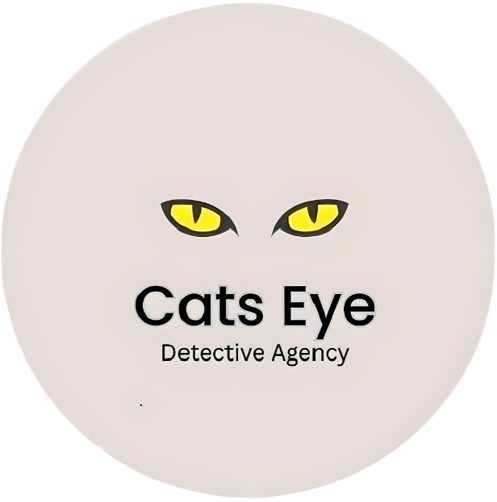
Introduction
Hiring the right person isn’t just about filling a position — it’s about protecting your company’s integrity, productivity, and long-term success. Yet, one wrong hire can lead to a domino effect of financial losses, operational inefficiencies, and reputational harm. Understanding the cost of a bad hire underscores why employee background checks are not a luxury but a necessity in today’s competitive business environment.
Understanding the True Cost of a Wrong Hire
A poor hiring decision can cost your organization far more than a single paycheck. From wasted recruitment efforts to the time spent on retraining or rehiring, the cumulative loss can reach staggering amounts. Beyond monetary costs, a wrong hire can disrupt workflow, lower morale, and reduce overall productivity.
How a Bad Hire Affects Your Business
A bad hire doesn’t only perform poorly — they can negatively influence your entire organization. Financially, they drain resources. Culturally, they create friction. Strategically, they slow down momentum. If left unchecked, one wrong hire can affect client satisfaction and brand perception.
The Ripple Effect on Team Performance
Team dynamics are fragile. When one team member consistently underperforms or behaves unethically, it impacts the entire group’s morale. Other employees may feel demotivated or overburdened, leading to higher attrition rates and decreased trust in leadership.
Reputation Damage: The Hidden Price Tag
In the digital age, reputation is everything. A single employee’s misconduct or incompetence can cause public embarrassment, loss of customer confidence, and long-term damage to the company’s image. Restoring reputation often requires substantial time and investment — resources that could have been preserved through careful background screening.
Legal and Compliance Risks
Negligent hiring is not just a mistake; it’s a legal liability. Companies that fail to conduct proper background checks may find themselves entangled in lawsuits, especially in cases involving fraud, data leaks, or workplace harassment. Ensuring compliance through background verification minimizes such risks.
What Is an Employee Background Check?
An employee background check is the process of verifying a candidate’s identity, professional credentials, and integrity. It validates the information shared during recruitment, ensuring your organization hires individuals who meet both professional and ethical standards.
Key Components of a Background Check
- Identity Verification – Confirms the authenticity of personal details.
- Employment and Education Verification – Validates work history and academic credentials.
- Criminal Record Checks – Identifies any legal risks or red flags.
- Reference and Behavioral Checks – Provides insights into a candidate’s professional conduct.
The Role of Technology in Background Screening
The integration of AI and data automation has revolutionized employee verification. Advanced platforms can now cross-check data quickly, reducing manual errors and ensuring compliance. Moreover, secure technology ensures candidate data remains confidential and protected.
Benefits of Conducting Background Checks
- Enhanced hiring quality through factual verification
- Reduced workplace risks such as theft, fraud, or harassment
- Greater employee trust and transparency
- Improved company reputation among clients and stakeholders
How to Implement Background Checks Effectively
To implement effective background checks:
- Choose a trusted verification partner with industry experience.
- Follow legal guidelines like GDPR and FCRA to ensure compliance.
- Maintain open communication with candidates to ensure transparency and trust.
Common Myths About Background Checks
Many believe background checks are costly or unnecessary for smaller organizations — this is far from true. The reality is that a single negligent hire can cost more than a lifetime of background verifications. Background checks are not about distrust but about safeguarding your company’s future.
Balancing Trust and Verification
While trust remains the cornerstone of any professional relationship, verification ensures that this trust is well-placed. Background checks don’t eliminate faith in people — they strengthen it by confirming authenticity before employment begins.
Cost vs. Value: A Strategic Perspective
A background check might seem like an additional expense, but in reality, it’s a long-term investment. The cost of one wrong hire — in terms of training, lost productivity, and potential legal issues — is exponentially higher than the price of preventive verification.
Conclusion
In today’s fast-paced corporate world, where talent acquisition drives growth and innovation, making the right hiring decisions is crucial. A wrong hire can silently erode your organization from within — damaging culture, straining finances, and jeopardizing client relationships. Background checks serve as the first line of defense against such risks, ensuring that every employee you onboard aligns with your company’s ethics, goals, and values.
Beyond safeguarding finances, background screening reinforces your brand’s credibility and fosters a culture of transparency and accountability. It demonstrates to your employees, clients, and stakeholders that your organization values integrity as much as performance.
This is where Cats Eye, a leading private detective agency based in Kolkata, plays an instrumental role. With years of expertise in employee background verification and corporate investigations, Cats Eye helps businesses make informed hiring decisions. Their thorough, confidential, and legally compliant verification process ensures that companies hire trustworthy professionals who contribute positively to the organization’s success.
Whether you’re a startup or an established enterprise, Cats Eye’s background check services can help you minimize hiring risks, protect brand reputation, and build a secure and ethical workplace environment. Because in the long run, prevention is always more cost-effective than correction.
FAQs
Not necessarily, but they are highly advisable, especially for sensitive positions involving finance, data handling, or client interaction.
Typically, between 2 to 7 business days, depending on the level of verification and region.
Small discrepancies are usually reviewed in context. Employers focus on intent and severity before deciding.
No, each sector has specific verification standards based on its risk profile and compliance regulations.
Reputed agencies like Cats Eye offer customized, budget-friendly packages that make background checks accessible for businesses of all sizes.
